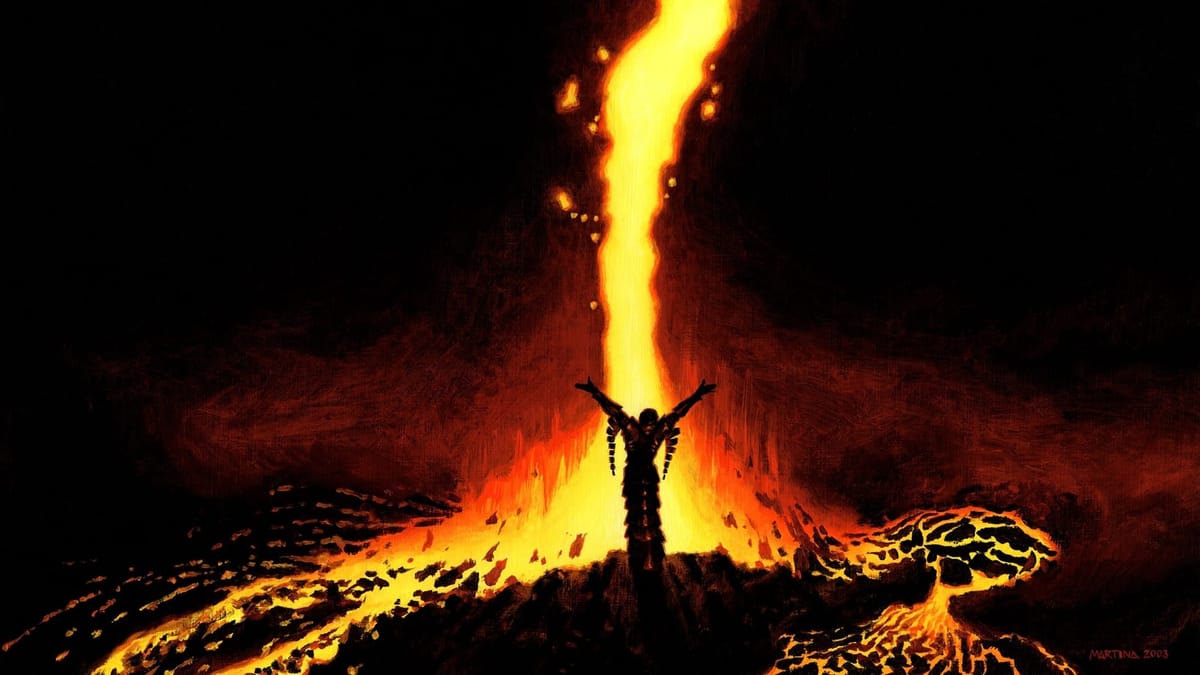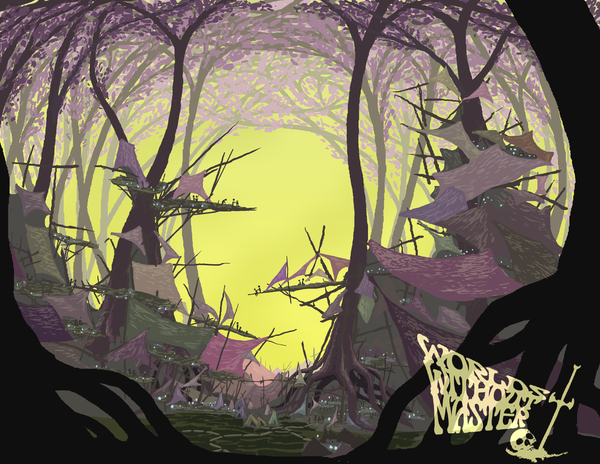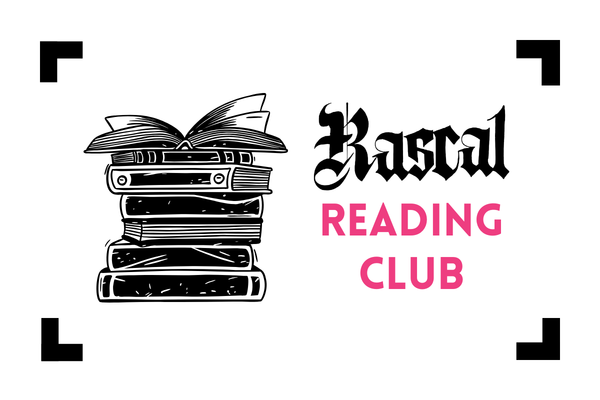UPDATED: Stare The Devil in the Face and Walk Forward - ft. Cameron Kunzelman
Number one: make your bed. Number two: change your homepage.

[Update Oct. 28, 11:39am EDT: The article now correctly lists the University of Minnesota Press as the publisher for Everything is Permitted: On Assassin's Creed. We apologize for the error. The original article continues below.]
Chase is joined on Episode 24 of the Rascal Radio Hour by writer, critic, academic, friend of the show, and hater of Commander: Cameron Kunzelman. The two wax long on the current, Fortnite-ified state of Magic: The Gathering, as well as its carefully and expertly maintained past. How does one square financial success and wide availability with an anemic playerbase and eroding creative identity? Not easily, it turns out.
Later on, the pair discuss how tabletop companies might deal with the new 130% tariffs against China. Cameron is hunting for the Dogman in Michigan. Chase's concerns with both Daggerheart and the Cosmere RPG deepen as he heads into open campaign play. And they chat about the precarity shared between journalism and academia. The episode wraps up with a discussion of trashy reality television, as it always should.
Cameron has a new book coming out soon! Everything is Permitted: On Assassin's Creed explores the sprawling series and its effects on video games as both creative and economic product. What does it mean to be "an Assassin's Creed game", and what can we learn from the real-world histories portrayed through the eyes of parkouring time travelers? You can buy the paperback now through the University of Minnesota Press website.
You can find Rascal Radio Hour on Apple, Spotify, and all the other various podcatchers. Leaving a five-star review helps new listeners find our show and website. Since we eschew traditional advertising, these reviews and any word-of-mouth are genuinely a massive help — thank you!
Here's an excerpt:
Cameron Kunzelman: This is my memory of a Mark Rosewater thing, so take this with a grain of salt, please. But I think it's a useful heuristic, at least. About a third are people who play a few times, and they don't come back. About a third are people who play some definition of regularly. And about a third are returning players who were either part of segment one or segment two — and at some indeterminate time in the future are going to buy a new box with their friends and play the game in a kind of nostalgia mode.
The trick of Magic: The Gathering — and this is now me editorializing on this anecdote I'm half remembering — the trick is monetizing each of those in different ways. The reason this kind of Rosewaterism sticks in my mind is that if you have that in your head, that explains a lot of decisions that get made around Magic, right? Maybe the purpose is not to get someone converted into being a regular player off of Bloomburrow. Maybe that's not the purpose of Final Fantasy. Maybe that's not the purpose. Maybe the purpose is to have them play it now. And when they do Final Fantasy 2, maybe they buy a box then and become a regular player at that point. That's possible. And they have way better numbers than I do on that. I think a lot of their business decisions are driven that way.
My local store does pre-releases, an occasional draft, an occasional standard night, and a weekly commander night. And then a monthly or bi-monthly Modern but no other format beyond that, right? But they're doing commander every single week. So, they do have a conversion method. Their conversion method is, hey, you came into the pre-release? That's awesome. We have commander night on Wednesday. Come then, and we'll get you a commander deck. You can borrow one from the store or from someone here, or you can buy one and customize it tonight with the cards you've opened. Or we'll just teach you how to play, and then we'll go from there. Can you get people from pre-release to commander? And commander comes with a group of friends. And when commander comes with a group of friends, that's a whole 'nother ball game.
Very cynical, but I understand it from a business perspective. Commander sells you on sociality. Sociality sells you on the game more than I'm gonna be the sweatiest person playing nine rounds at the Grand Prix does. It just does. That's a more compelling story. And I'm nine rounds at the Grand Prix. I'm okay. We don't call them Grand Prixs anymore. I'm at the Magic Fest. I'm willing to do that. I find that fun. I find that interesting. That is a thing in the game that I enjoy. That's not the player base. And that probably has never been the player base. If they'd figured this out in 1997, the game would be much, much bigger than it is today.
Chase Taylor-Carter: Yeah, it is very fascinating because I think the Magic community likes to self-mythologize in a lot of ways. And one of those self-mythologies is that standard has always been in need of saving. It is the sort of the golden child that has always been at risk, and it is the thing that we need to put the most effort into saving against the judgment of Wizards of the Coast. Maybe, historically, that's true to a point, but I think the game has always been heading in this direction. What's the term for capitalism that you speed up really quickly so it'll crash as soon as possible.
Cameron: Accelerationism.
Chase: Yeah. It's almost like accelerationism at this point with Universes Beyond and that sort of, like you said, apocalyptic growth of the game in weird ways.
Cameron: Look, if Magic: the Gathering at its current state crashes to half of its year-over-year value, it will still be bigger than the game has been for 90% of its existence, right? I think the magnitude of numbers here, if you're like business-brained, I think that you can understand. You could look at the numbers now and accept a 25% retraction, and you'd still be fine, right? Obviously, the investors and the board of Hasbro is not gonna be happy with that, but in terms of raw numbers and Magic and WotC versus Hasbro, they could sustain a significant, wound and it would still be fine.
The way you can tell that is to look at hires for Wizard of the Coast. Pay attention to who's being hired. It's not like they've grown to be a $1 billion-plus brand, year over year. It's not like they've hired another 200 people, right? It's still, by all metrics that I'm concerned about, a skeleton crew over there. I toured the D&D offices in 2015, and you'd be shocked with the skeleton crew nature that all of these teams run on. It's just absolutely obliterative to know how much value per human person is being generated.





